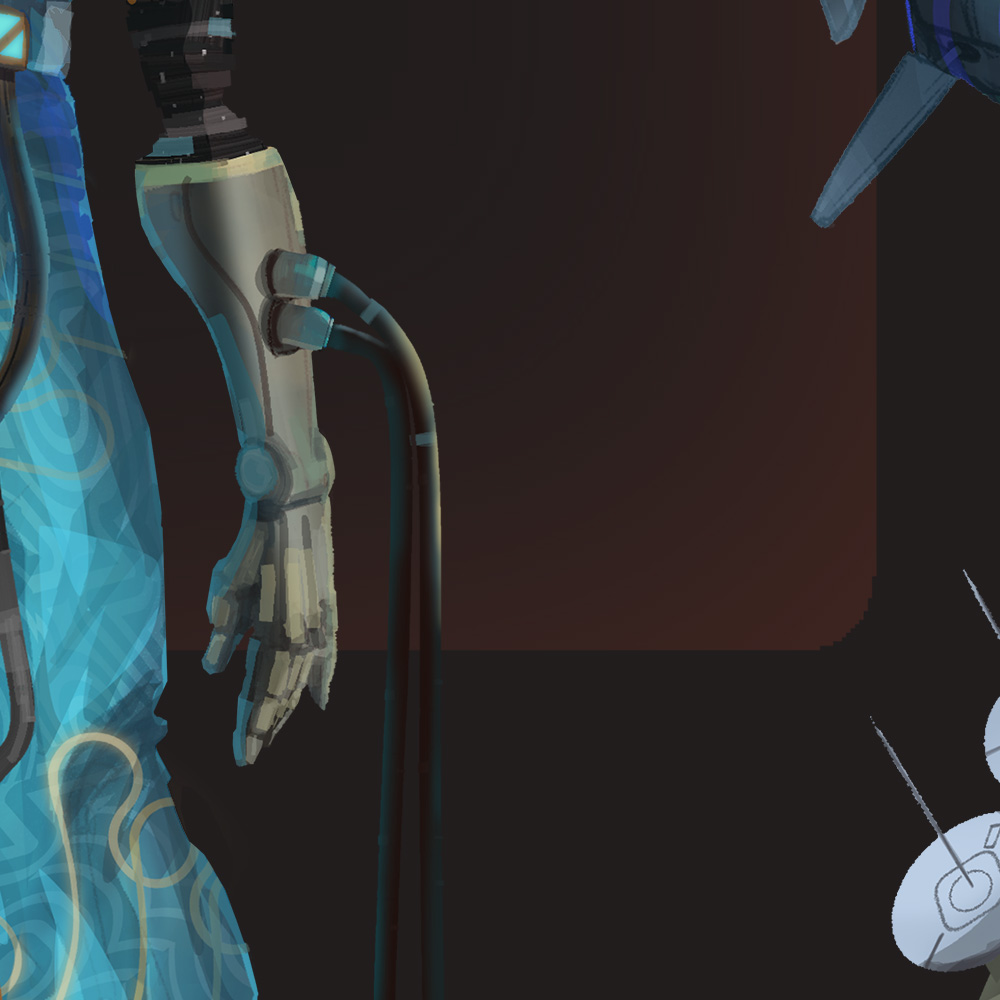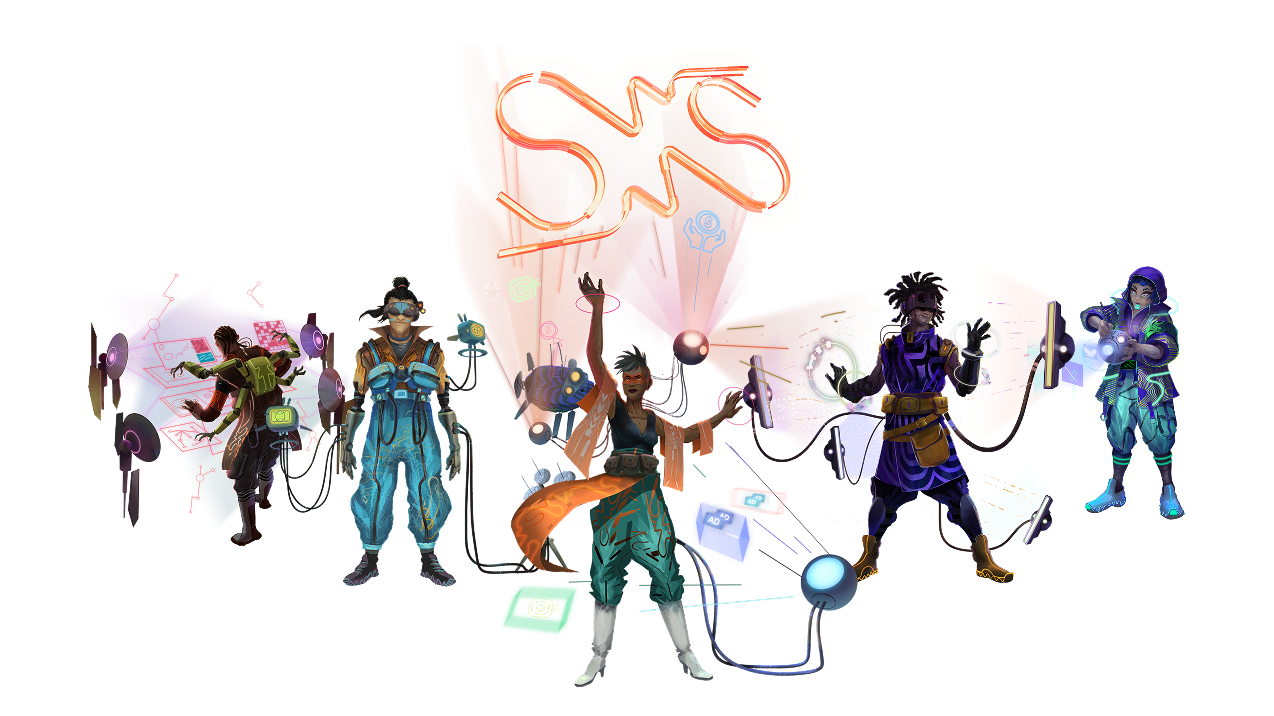
B2B digital marketing is a subset of digital marketing. It focuses on marketing to other businesses rather than consumers. Whilst it can often be seen as the less interesting aspect of digital marketing it can offer a much more nuanced and strategic approach that suits some people.
If you’re thinking about getting into B2B digital marketing, or you have just started a career in digital marketing and you’re working in a company selling to other companies then this guide is designed to help you along the way.
It has been written by B2B digital marketing experts with decades of experience of working in B2B digital marketing agencies and in B2B SaaS start-ups as well as large enterprises B2B companies so we should have you covered!
Digital Marketing Qualifications, do you need any?
Digital Marketing is a very fast moving industry. Powered and aided by lots of marketing tools and platforms like social media it is ever changing. Trying to keep up with that from a training perspective is very difficult. Some people turn to digital marketing courses and qualifications like the Chartered Institute of Marketing (CIM) qualifications in the UK, but are these worth it and do you need them?
The cost of ‘chartered’ digital marketing courses
Charter comes from the Latin charta, meaning "paper, card or map." As a noun, charter refers to a written document outlining — or mapping — the rights and obligations of a company or organization, or even, in older days, a town or entire colony. In short it's pretty old school.
Being ‘chartered’ is a prestigious thing in many industries such as accounting. If you are looking to employ someone in finance and accounting you most likely want someone who is a chartered accountant.
You can also become a chartered marketing professional. For digital marketing, being a chartered marketer doesn’t hold as much weight. This is for a few reasons:
- Digital marketing evolves too quickly for institutions to build and deliver educational courses, unlike practices like accounting which stay consistent.
- Digital marketing can be practiced by anyone with much lower impact on a business in terms of risk.
- Digital marketing does not have one solution or best way of doing something, it is more creative and therefore more open to interpretation.
One of the barriers to becoming a chartered marketer is the cost and sometimes the requirements of already having a bachelor's degree.
Free digital marketing courses
You can learn pretty much anything you want for free by researching online. There are thousands of videos and articles on the internet on every topic imaginable, including digital marketing.
Cheap training courses on websites like Udemy can be a great alternative to paying thousands but also give you a bit more structure than just randomly searching the internet.
Learning B2B Digital Marketing vs B2C
B2B Digital marketing is different from B2C marketing. Most people are exposed to B2C marketing from a young age, just like kids toys etc. These are all B2C brands and B2C marketing campaigns.
Unlike B2C marketing, most people are not exposed to B2B digital marketing until they work for a company, at this point you realize a company uses tools and services to help it run. Like accounting software or office rental space. This is why B2B digital marketing is a bit more nuanced because the ways of selling to a company rather than an individual or not intuitively learnt.
Common mistakes made by junior B2B marketers is trying to implement what they know from growing up and being exposed to B2C marketing tactics like influencer marketing and social media heavy strategies.
Whilst there is often a place for B2B influencer marketing and social media marketing, the weighting of this when compared to other marketing strategies is not as heavy.
Here are some great resources for getting started when learning about B2B digital marketing:
- Understanding the B2B buyer journey
- A guide to B2B inbound marketing
- Employee advocacy using social media
Experience, learning by doing.
One of the most common ways to learn digital marketing is just to start doing it. Anyone can set up a website or blog and practice digital marketing strategies to help improve its visibility online.
How to gain digital marketing experience:
Gaining experience can be one of the hardest things to do when you are just starting out in your career. Here are some tips for gaining experience:
Tip 1: Build your own website:
The great thing about digital marketing is that anyone can do it by building their own website for little to no cost using tools like WordPress or Wix. Try building a website on a topic you are interested in and practice writing content and building traffic to it organically.
Tip 2: Offer services for free
Another great way of learning by doing is offering digital marketing services for free. This can be things like managing someone's website for them or helping them improve their search engine optimisation.
Tip 3: Watch TikTok & YouTube videos
So this doesn’t give you experience but it is a great way of learning and educating yourself so when you come to a job interview or trying to work for yourself you can be more confident in your skills.
Tip 4: Join a digital marketing agency as an intern
Digital marketing agencies are some of the best places to learn and gain digital marketing experience. This is because you are surrounded by paid professionals who are employed by companies to run their digital marketing strategies.
Gaining confidence in your digital marketing knowledge
Something that is very important to reach the top of your game when it comes to digital marketing is eventually gaining confidence in your own knowledge to the point where you don’t look to others on how to execute.
Many people, even very successful people in business, always talk about imposter syndrome where you constantly doubt your own skills. While this can be healthy to ensure you always look to educate yourself and improve, there comes a point where you need to embrace what you have achieved and learnt. This will enable you to become a leader in your field.
Generalist vs Specialist Digital Marketing
One thing you will come across at some point in you will come across the opportunity to be either a specialist or a generalist, or as some people also call it a T-shape marketing specialist. This is personal preference but there are pros and cons to specialising or not when it comes to digital marketing.
Specialising in a certain aspect of digital marketing allows you to become an expert in a particular area, such as SEO, content marketing, or social media marketing. Becoming an expert allows you to develop deeper knowledge and skills, which can make you more valuable and attractive to employers. Additionally, specialising can help you to become more efficient in the tasks you do as you become more familiar with the techniques and tools involved.
The benefits of being a “generalist” are that generalists have a wide range of knowledge and skills, which can make them more adaptable and able to solve complex problems. Additionally, generalists often have broader networks and a larger range of contacts, which can help them to find a job more easily.
You typically will find what would suit you after working in the field for a few years, you may find you are particularly interested in a specific area such as Paid Advertising or SEO, or, you may like to have a broader working knowledge of a lot of different things.
It is true that ‘generalists’ tend to gravitate towards managerial and people management positions just by the nature of their knowledge, but, specialists also can take people management positions if they wish. Working in agencies is a great way to be a specialist and also become a people manager as you may have a large team of specialists working with you.
Where to start?
Ok, so where do you start? There is no one best way of doing things when it comes to getting into B2B digital marketing. Everybody finds a different route in their careers so don’t worry if you think you are not doing the right things. The key is still stay hungry to learn and find your passion or interest within the profession, from there, everything else will come naturally.
Find a B2B SaaS Expert
We've collected a directory of B2B SaaS experts and agencies that we've reviewed and categorised based on service and specialism for your review.








